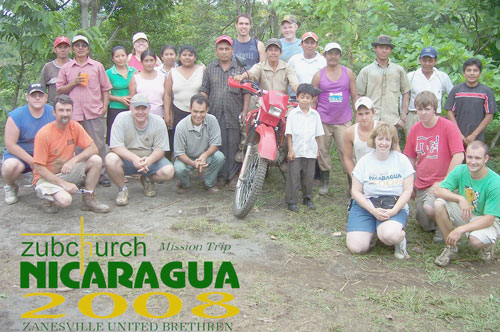08 Jul Update from Roger and Marilyn Reeck
 Roger and Marilyn Reeck are UB endorsed missionaries serving with Wycliffe Bible Translators. Though based in La Ceiba, Honduras, they have been spending considerable time the last few years working with translation projects in West Africa. Here is part of a report received on July 8.
Roger and Marilyn Reeck are UB endorsed missionaries serving with Wycliffe Bible Translators. Though based in La Ceiba, Honduras, they have been spending considerable time the last few years working with translation projects in West Africa. Here is part of a report received on July 8.
We are now two-thirds through our time here in Africa. The Lord has been so good to us, revealing Himself to us in so many ways and helping us through many situations that we know we couldn’t have done through our own strength.
Our first assignment was the two-week Balanta Scripture Use Workshop. The 13 participants worked hard and learned tons. They left with lots of ideas and tools to promote the use of Scriptures in their mother tongue, Balanta.
Then we changed hats for our second assignment–hosting a group of missionary kids from North Carolina. They participated in a variety of activities–
- helping out at an orphanage.
- a mini VBS for the local children.
- activities for youth.
- a one day woman’s retreat.
Materials produced at the Balanta workshop were used with the children, youth, and women. This experience has helped several of the American teenagers to consider dedicating their lives to missionary service.
We came back to Senegal to see them off and are now on our way back to Guinea Bissau for the third assignment. Over the remaining weeks, Roger will be training and checking the translation of two different language groups. Marilyn will work on a video project. We leave for home on August 2.

